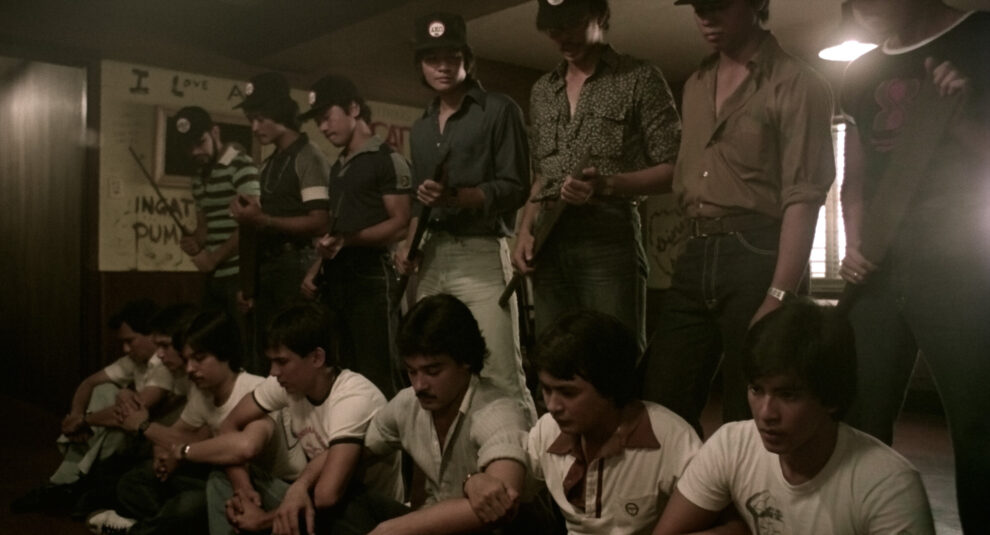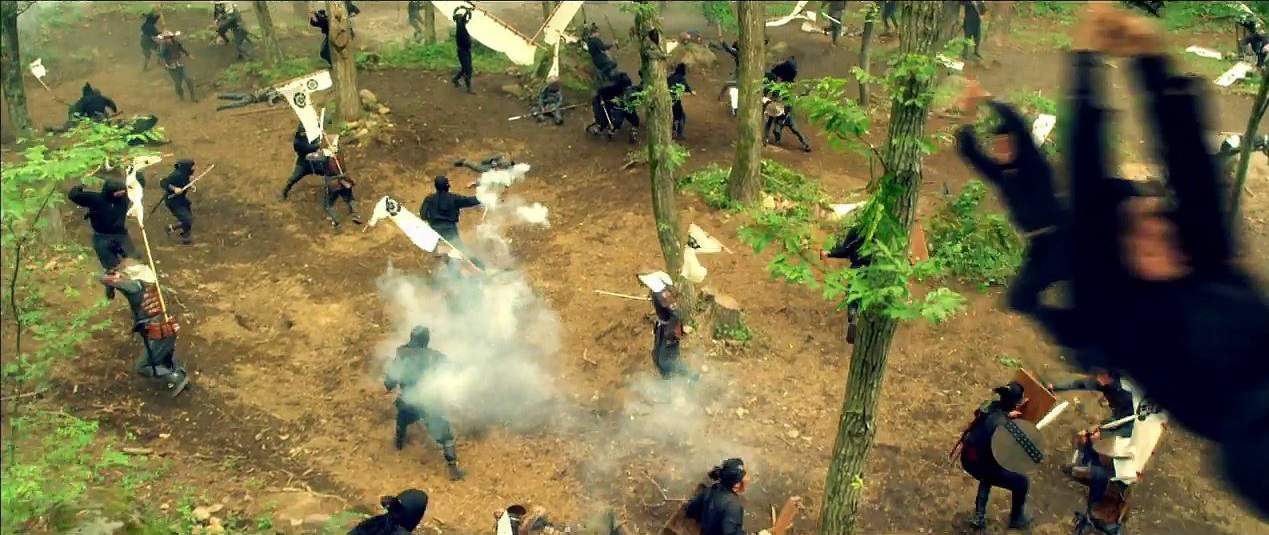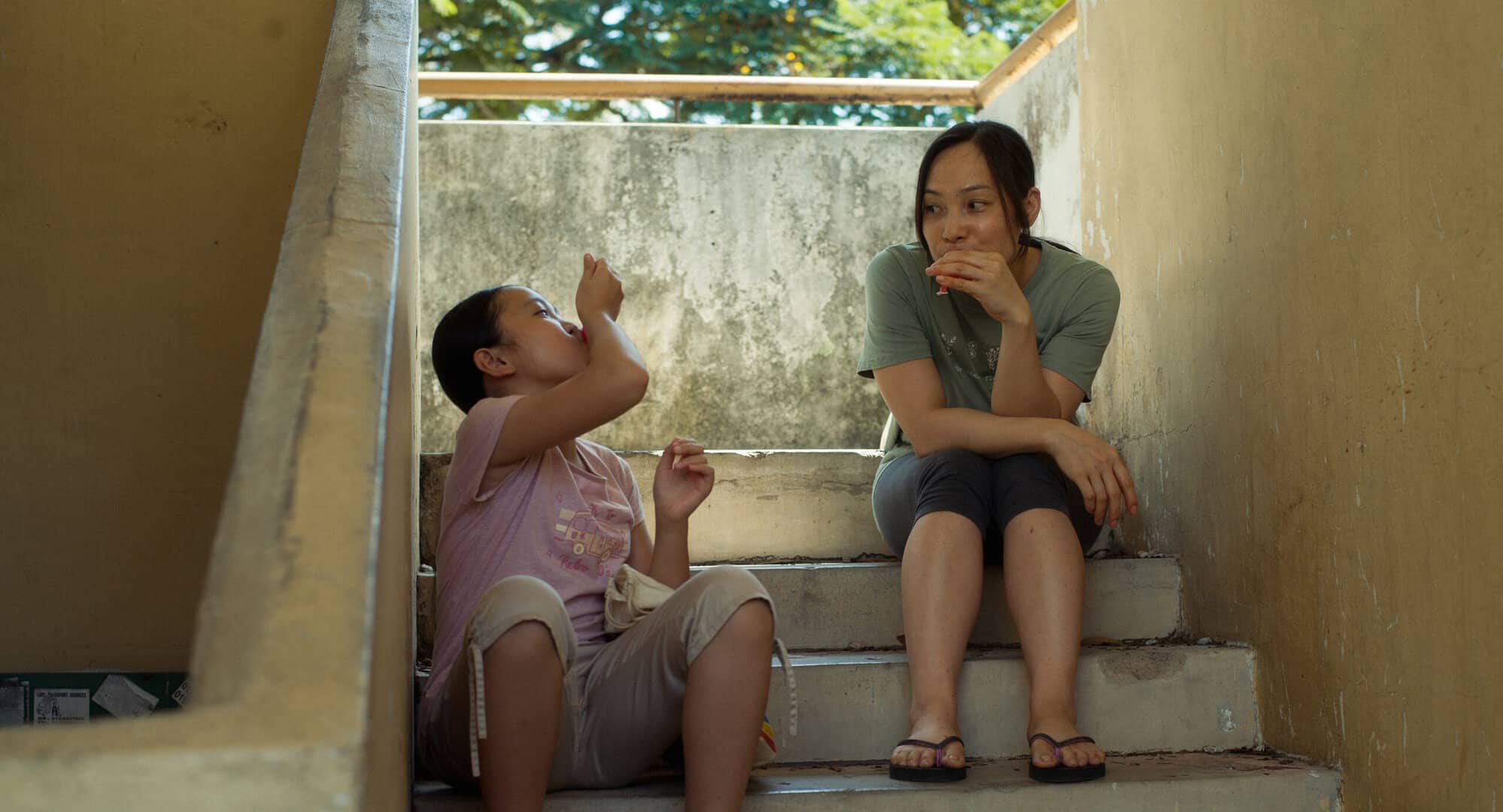As I have mentioned many times before, violence has been repeatedly used in cinema as a medium of intricate commentary, mostly revolving around sociopolitical, psychological and philosophical themes. This tactic finds one of its apogees in “Batch 81”, a film that deals with the underground tactics of the university fraternities, but is also an allegory regarding fascism and the Marcos regime. The film premiered at the 1982 Cannes Film Festival during the Directors' Fortnight, screened alongside de Leon's 1981 “Kisapmata”. The Manunuri ng Pelikulang Pilipino (Filipino Film Critics) included it on their list of the Ten Best Films of the Decade. In 2017, it was digitally restored with the support of the Asian Film Archive, with a theatrical premiere at the 74th Venice International Film Festival as part of the Venice Classics section.
Also of note is the fact that Mark Gil, who plays the protagonist Sid Lucero, is the father of Timothy Mark Pimentel Eigenmann, who became known as an actor with the name Sid Lucero.
The aforementioned is a pre-med student, who wants to become a member of the Alpha Kappa Omega fraternity (AKO), the school's most influential Greek-letter fraternity. Eight of the initial fifteen applicants make it into the organization's six-month initiation program, overseen by senior members, headed by Vince. However, the process is more torture than anything else, gradually threatening the health of the applicants, while having severe implications in all aspects of their life. Sid's girlfriend, Mariel, warns him about the fraternity, revealing that her brother died during the process some years before. Arnie also has trouble with his girlfriend, Tina's brother, Abet, who is the leader of SOS, a fraternity whose members are anarchists, with the latter not wishing his sister to be involved with him at all. Ronnie, another potential member, is the son of an AKO alum, who puts even more pressure on him to become a member himself. Eventually, the members realize that they could not even quit if they wanted to, while the tension with SOS becomes more and more intense.
Regarding the violent/exploitation aspect, De Leon wastes no time in succumbing his protagonists right in, with the torturing essentially starting from the beginning of the movie, while becoming worse as time passes. In that fashion, the members are forced to have sex with prostitutes while secretly being filmed and watched by the rest of the members, to run in public just with their underwear, while, at the university's inter-fraternity talent show, they are forced to dress as women and perform numbers from the musical “Cabaret”. Disgrace, however, is just the beginning, as physical torture is also on the agenda, with the medical instruments scene and the drinking from the same cup one definitely testing the limits of even hardcore exploitation fans, not to mention the random beatings the initiates suffer every time they “misbehave”. Lastly, the inevitable clash with the SOS members, signals the most violent sequence in the whole film, with the gore moving the title to slasher paths.
Check the interview regarding various aspects of Filipino cinema
Violence here, however, is not used to titillate or excite, but as a medium for various comments, something that becomes apparent from the beginning. The way the actual members establish authority, through violence and “etiquette”, as the initiates are forced to call them ‘master', is a distinct remark on the effect of actual and psychological violence, while in allegorical terms, the way fascist regimes establish theirs, with essentially all the comments here working on two levels, with the second always referring to Marcos's tactics. That the members, in the beginning feel like passing the tests is a heroic deed, while as time passes, they get the sense that their previous efforts will be for nothing if they quit, is also a testament to human psychology, while the fact that they never actually feel that they can get out adds even more to this sense, essentially enslaving them to the organization. The chants about the fraternity, which are constant, the sense of comradeship they eventually feel for each other, and the carrot after the stick that eventually comes in the way the whole fraternity fights SOS, all add to the ways the members feel that AKO is their sole purpose in life, an inescapable path that any kind of derailing from it can only lead to more pain.
It is easy to say that the whole approach is the same as in army training, where, after rigorous physical and psychological training, an enemy is established in order to join the whole force towards the common goal of its eradication, with the same applying, with some variations, to the ways fascist regimes create their followers and deal with their enemies.
Rody Lacap's cinematography captures the events with an approach that feels documentary-like, with the camera zooming in on the characters and the events for the majority of the movie, in a no-punches-pulled approach that adds to the shocking sense the film emits. Particularly regarding the one cup scene, it would be very interesting to know how De Leon shot it, since it looks appallingly realistic. Jess Navaro's editing results in a relatively fast pace that suits the episodic nature of the narrative nicely, while at 100 minutes, the movie definitely does not overextend its welcome. The fight choreography could have been a bit better, since, a number of times, editing is implemented in order to show the impact, while when it is not, the result looks very-low budgeted one, as in the case of the frats fight. This, however, is not a particularly big issue, and one could even say that it adds to the raw approach De Leon implements throughout here.
Mark Gil is impressive as Sid Lucero, with the way he swallows his pride and anger for what is happening in the beginning, and the way he changes to a rather dedicated member of the frat being among the highlights of the movie. Ricky Sandico as Ronnie is equally good, with the way his father's past is placing an even heavier burden on him to become a member, being convincingly portrayed throughout the movie. Lastly, Jimmy Javier as Vince plays the role of the “noble villain” to perfection.
“Batch 81” is an outstanding film whose comments and raw approach has allowed it to stand the test time, in a title that can be appreciated by fans of both cult and arthouse cinema, in a combination that seems to be inherent to Mike De Leon and of Filipino cinema of the 70s and 80s.
















